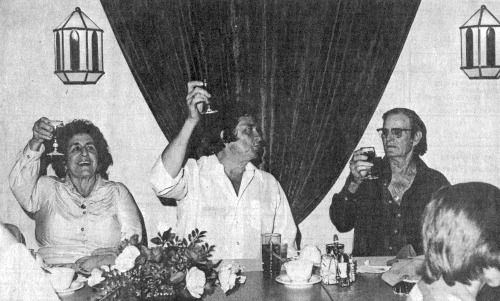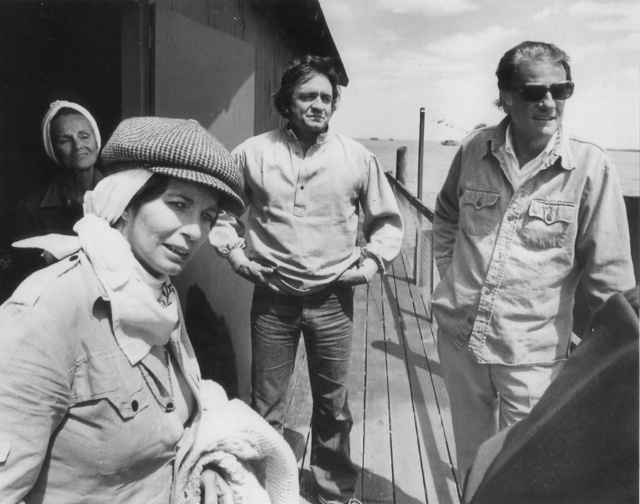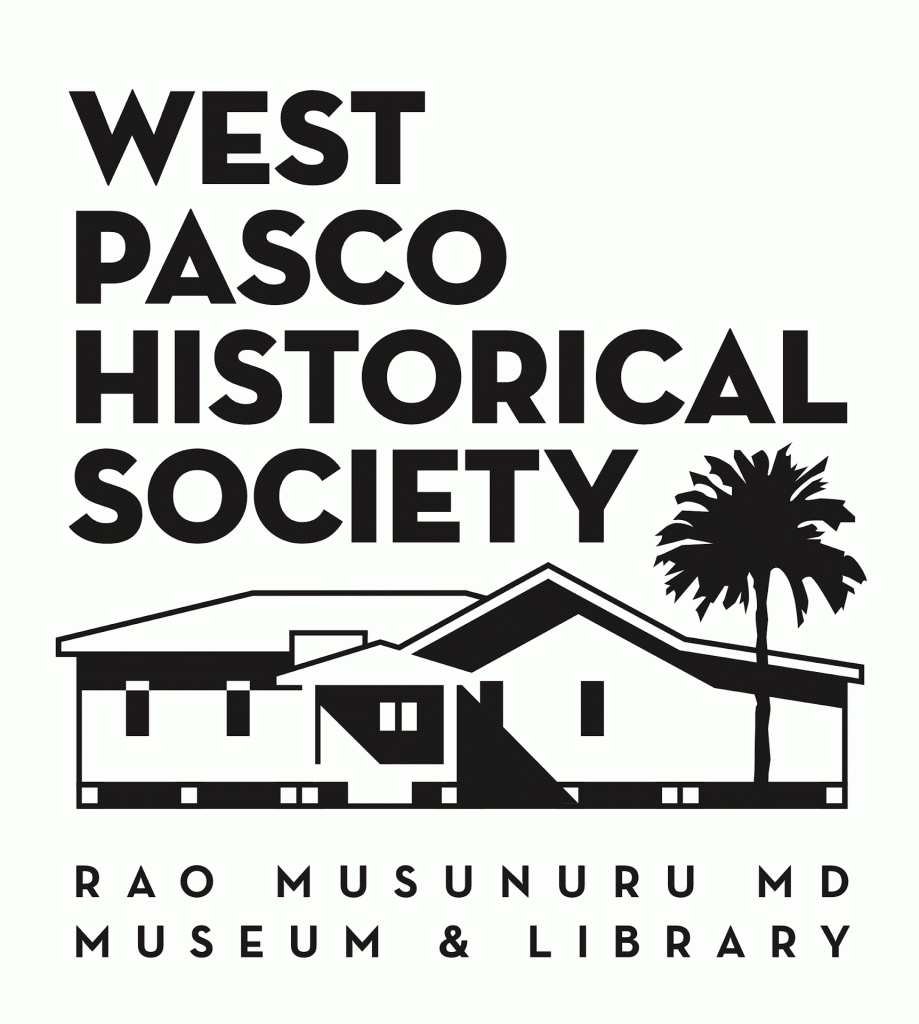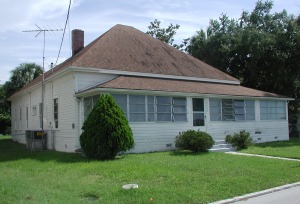HISTORY OF PASCO COUNTYJohnny Cash According to the recollection of Des Little (below), Ezra J. “Pop” Carter and “Mother” Maybelle Carter purchased this house in Port Richey in 1962. According to Jeff Cannon, county records indicate that the Carters bought the home in February 1966. Will You Miss Me When I’m Gone? The Carter Family and Their Legacy in American Music by Mark Zwonitzer and Charles Hirshberg has:
When he died in 1975, the New Port Richey Press reported that Ezra J. “Pop” Carter “was a frequent visitor to the Port Richey area where he owned a house on the Pithlachascotee River. … While in Port Richey, he spent most of his time fishing and writing music.” In Cash: The Autobiography (1998), Johnny Cash wrote, “Several names, several homes. I’m part gypsy, part homebody, so I live according to a rhythm alien to most people but natural to me, splitting my time on a semi-predictable basis between my big house on Old Hickory Lake just outside Nashville; my farm at Bon Aqua, farther outside Nashville; the house in Port Richey, Florida, that June inherited from her parents; an endless succession of hotels all over the world; my bus; and my house in Jamaica, Cinnamon Hill.” He also wrote:
Littles Get a Cash Benefit in a Toast for 41st Anniversary This article appeared in the Pasco Times on June 9, 1978. By LINDA PERRY PORT RICHEY — “The man in black” put on a white shirt and joined his friends, Mr. and Mrs. Des Little, in their 41st wedding anniversary celebration here Wednesday night. Singer Johnny Cash was on one of his frequent visits to Port Richey where his mother-in-law, Maybelle Carter, lives. Cash relaxed with Little and his family at Little’s stilthouse on the gulf, where they “fished off the porch.” Later Cash and son John Carter Cash joined the Little family in an anniversary dinner at Guide’s restaurant in Port Richey. Cash was greeted by many surprised patrons and excited employees of the restaurant. Mike Preola, attending an Italian-American club meeting in the next banquet room, greeted Cash and told The Times that singer June Carter and Cash had worked for him when he owned clubs in Europe featuring professional entertainment. June Carter is Mrs. Cash. Cash toasted Des and his wife Michaeline before dinner and was joined in the toast by the Little children, Gene, Terry, Peter and Mary, a son-in-law, daughter-in-law and grandchildren. The toast was returned along with good wishes for a speedy recovery for June Carter Cash. She is soon to be discharged from a hospital in Rochester, Minn., where she has been receiving therapy for a back ailment. Little said he met Cash in 1962 when Cash’s future father-in-law, the late Ezra J. “Pop” Carter, bought a house in Port Richey. Cash visited June before they married. Cash said he arrived Sunday in Port Richey and will return to his home in Hendersonville, Tenn. this weekend. He is here to visit his mother-in-law, relax and enjoy fishing for trout while on a three-week break from his own road show. Cash has been fishing from here in the Gulf of Mexico for 15 years. He says whenever he goes fishing in the gulf, “I bum off him (Little) and use his boat,” which is also named Michaeline. Cash, in white shirt, said “it’s too hot” to wear black, his customary garb when he performs. After dinner and after the children were taken home and Cash changed into his traditional black, the party moved to the nearby Silver Spur nightclub (owned by one of Little’s sons) where Cash did what he’s most famous for — sing. Billy Bagwell and the Country Playboys, who were singing many of Cash’s songs before Cash walked in, provided background for Cash. He opened with Folsom Prison Blues and a surprised, happy crowd took up the beat. Pasco County Sheriff John Short was among the Cash fans who witnessed the singer’s performance for Mr. and Mrs. Little. Little introduced Cash as having his own horses, road show and television shows, but Cash countered that he had no horses. He said singing was all he could afford to give to honor the couple on their anniversary. Cash is “one hell of a swell guy,” Little said. He added that he knew Cash before he “was big.” “He came up the hard way,” Little said. “He was a farmer and a share cropper (in Arkansas) and his dad was hard working.” Cash added that he worked on a cotton farm. Little, who can “call Johnny a real friend,” said that Cash’s visit “I’made this occasion very nice.” 
Johnny Cash’s Adopted Town Says GoodbyeThis article appeared in the Pasco Times on Sept. 13, 2002. By ALEX LEARY and BRIDGET HALL GRUMET PORT RICHEY – Johnny Cash, the legendary country music artist who died Friday at age 71, will forever be remembered as the “Man in Black.” But here in Port Richey, he shed the dark duds for shorts, T-shirts and a fishing pole. When he needed a respite from the road, an escape from the spotlight and the sometimes hard lifestyle he led, Cash would head to a simple wood-frame house overlooking the Pithlachascotee River. “Everybody left him alone, and he enjoyed it because of that,” said Port Richey City Council member Bill Bennett, who grew up near the Cash house. “He just loved to fish and relax – a down-to-earth, good ol’ boy.” Yet for as much as Cash saw Port Richey as a diversion, he embraced his adopted community, showing appreciation in ways both small and large, such as the benefit concerts he gave in the late 1970s. Family ties brought Cash to Port Richey, where his mother-in-law, country singing matriarch Maybelle Carter, owned the riverside house on Sunset Boulevard. Cash and his wife, June Carter Cash, inherited the property in 1979, a year after Maybelle Carter died. Their primary home was in Hendersonville, Tenn. His visits to Port Richey date to the 1960s. Cash was a regular at Korman’s marina. “He would buy shrimp, squid and mullet (for bait) and head off in his boat,” remembered Jo Korman, 77. “Later you’d see him on the deck cleaning the fish.” When passersby learned the fisherman’s identity, they flocked to him. “He always shook their hand and gave autographs,” Korman said. Three years ago, when Korman was in the hospital, Cash sent her a heaping fruit basket. “He was a very kind man,” she said. A frequent destination for Cash was Des Little’s fish camp. On at least one occasion, in March 1976, Cash brought along a friend, the Rev. Billy Graham. “Johnny was always good to us,” said Pete Little, 55, Des Little’s son. To repay use of the camp, Cash bought the elder Little a Toyota truck. “Johnny was always bighearted like that.” “In his last years,” Little added, “his whole life was dedicated to that area: to family and to God. He was a marvelous man to know.” In 1971, Cash paid a hospital visit to a New Port Richey woman, Katie Rewis, because she wanted to see him before she died. “Cash held on to her hand,” a friend told the St. Petersburg Times in an interview at the time. A friend said Cash, who had never met Rewis, visited her because “the Lord had been good to him, and it was his place to share a little of it.” County Administrator John Gallagher first met Cash in the late 1960s at the Little family’s stilt home in the Gulf of Mexico. Gallagher and his friend, Pete Little, both in their early 20s, would water ski while Cash and others relaxed at the house. The Man in Black wore lighter attire in Florida. “He had normal clothes, shorts and a shirt, sitting in a chair, just looking at the gulf,” Gallagher said. Gallagher crossed paths again with Cash a decade later, when the singer offered to give a concert to benefit the police pension fund for New Port Richey, where Gallagher was the city manager. Cash gave back-to-back performances one night in 1978 or 1979 at Gulf High School for the cause, Gallagher said. [The correct date is Dec. 5, 1980. -jm] “He just had that feeling about police departments,” he said. Ruth and Bus Obenreder lived a few doors down from Cash and his wife. When the famous couple were in town, the Obenreders went over to chat or eat dinner. “He’d make us coffee that was so strong you could hardly drink it,” Mr. Obenreder said with a laugh from his home in Beacon Woods. He said the Cash home was simply decorated, nothing too fancy. But Johnny liked his comforts. His bed, Obenreder said, was extra soft and required a step stool to get into. “He said it couldn’t be soft enough.” Mrs. Obenreder said it was tough to see Cash’s health deteriorate in recent years. “I know he’ll be happy to be with June again,” she said. As her husband walked visitors to the door Friday, he picked up a black guitar and strummed a bar from I Walk the Line, one of Cash’s most recognizable songs. “He had such a full life,” Obenreder said. Cash cut one of his last ties to Pasco County in May 2002 when he and his wife sold their Sunset Boulevard house to Dean Rudder and Jennifer Zulian. The soon-to-be-married couple weren’t shopping for a celebrity home; they just wanted to live in the waterfront neighborhood, Zulian said. When they sent letters to out-of-town homeowners to see if any might be willing to sell, the Cashes were the only ones to respond, she said. The home still has traces of its old owners. A two-sided fireplace bears Johnny’s name on one end, June’s name on the other. Pots, pans, dishes, knickknacks and even a bedroom set came with the house, Zulian said. The warranty deed, bearing the signatures of John R. Cash and June Carter Cash, shows the home went for $180,000. “We got his autograph the expensive way,” Zulian said with a smile. |

 Their daughter June Carter married Johnny Cash in 1968. Johnny Cash visited
Port Richey on numerous occasions. The photo above, from a post card postmarked in 1915, shows the historic house which in the early days
was owned by A. S. Leach and later Morgan Davis. The photo to the left shows the house in 2002.
Their daughter June Carter married Johnny Cash in 1968. Johnny Cash visited
Port Richey on numerous occasions. The photo above, from a post card postmarked in 1915, shows the historic house which in the early days
was owned by A. S. Leach and later Morgan Davis. The photo to the left shows the house in 2002.